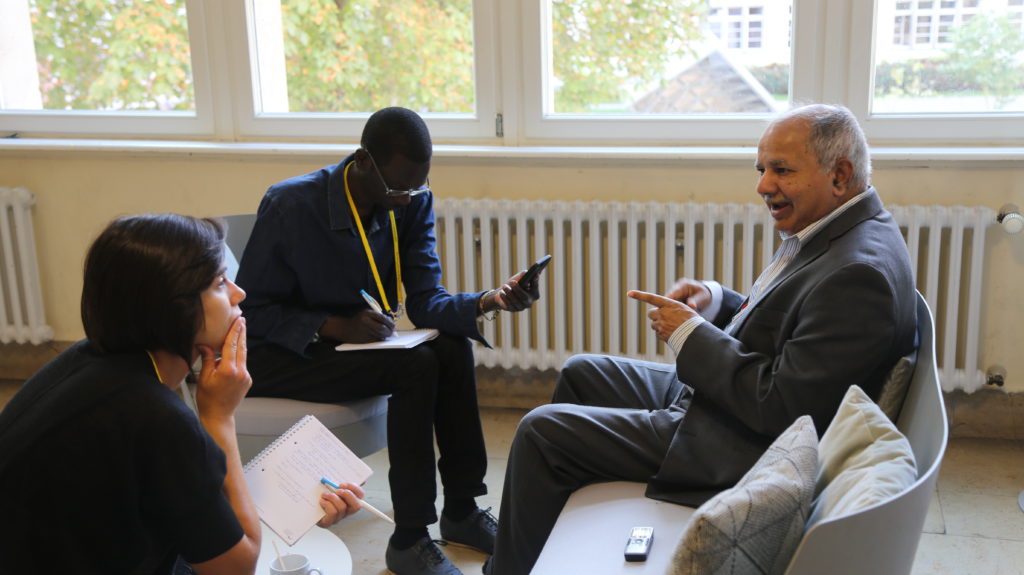Three big ideas to change the world with Raj Reddy
BLOG: Heidelberg Laureate Forum


On the rare occasion, I have found myself in a conversation with someone who somehow seemed to be from the future. Many of us in the tech business naturally find ourselves occupied with near-term priorities, while others operate in the ‘what’s possible’ mindset. A conversation with such a person is a rare opportunity that creates the feeling you’re speaking with a returning time traveller. I had this feeling while speaking with ACM Turing award winner Raj Reddy.
Raj was generous in sharing some of his visions for the next big thing in technology. The suggestions he shared with us were centered on the assertion that three billion live, one way or another, in a disconnected environment. There are varied reasons for this – economics is one, of course, but also some languages are spoken only. People living in a region without written language become orphaned in technology deserts. ‘Homo-disconnectus,’ as he called it. Bringing some level of technology to these people presents incredible opportunity according to Dr. Reddy.
Voice Computing
For semi-literate people, using a computer interface designed mainly for ‘economically viable’ languages is not an option. What’s needed is a real voice to computer interface designed first for orphaned languages. Bringing these three billion ‘homo-disconnectus’ people online would have a massively beneficial direct impact on them, and it would change the world.
We already have Siri, Cortana, Google Now etc. These are designed as partial voice computing agents, but for ‘homo-connecticus’ people as a convenience feature. A speech-to-speech technology is what’s required here. In fact, as Dr. Reddy points out, the technology exists. Microsoft demonstrated it as early as 2012. Amazon Echo/Alexa is another example. It’s just not available to those who could benefit most.
Commerce
Isolated, rural communities have limited access to products and even essentials. Additionally, they naturally pay more. Building on top of voice computing and access to affordable devices, Dr. Reddy suggests that commerce is the next area of opportunity. If billions of disconnected people were brought online with access to e-commerce, their cost of living could be reduced.
In my opinion, the bigger opportunity here is entrepreneurship. If the skills of technologically isolated people were suddenly made commercially available to a wider audience via entrepreneurship, their economic conditions would be improved.
Digital Democracy
Dr. Reddy suggests that digital democracy is inevitable. My understanding of what he meant was Internet-based voting, but he wasn’t very specific. I feel both electronic voting terminals and Internet-based voting are viewed very skeptically in North America. This to me is somewhat odd, since so many people clearly trust electronic banking, but perhaps it’s the establishments, not the machines, that are distrusted! Assuming Dr. Reddy means Internet based voting, I agree that it seems inevitable, but I expect this next big thing to be more popular in selected regions.

